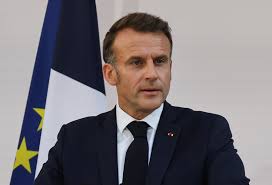
Introduction
The relationship between France and Palestine has been a focal point of international diplomacy, particularly in light of ongoing conflicts in the Middle East. As one of the key players in European politics, France’s stance affects not only regional stability but also international relations. In recent weeks, fresh developments have emerged that redefine France’s involvement and position concerning Palestinian statehood and peace efforts amid escalating tensions.
Recent Events
In the wake of renewed violence in the region, particularly after the October 2022 flare-up in Gaza, France has reiterated its support for a two-state solution. This position aligns with the widely accepted international consensus, which advocates for both Israelis and Palestinians to coexist peacefully within secure and recognized borders. French President Emmanuel Macron recently emphasized the importance of dialogue during a press conference in Paris, highlighting France’s commitment to mediating peace talks.
Moreover, France’s Foreign Minister Catherine Colonna visited the West Bank earlier this month to engage with Palestinian leaders and express solidarity. She underscored France’s willingness to resume financial aid to Palestine, which had been previously suspended amidst concerns of governance and security. This move is seen not only as a reaffirmation of France’s long-standing support for Palestinian statehood but also as a strategic approach to promote stability in an increasingly volatile region.
International Implications
France’s renewed focus on Palestinian issues is also a reflection of its broader foreign policy strategy, which seeks to balance its historical ties to both Israel and Arab nations. With shifts in global alliances and increasing scrutiny over other countries’ roles in the conflict, France aims to position itself as a neutral mediator within the largely polarized international community.
While aligning with United Nations resolutions and calling for Israel to cease settlement activities, France has faced criticism from some quarters, including mounting pressure from pro-Israel factions within the country. However, public opinion in France increasingly favors a robust stance on Palestinian rights, indicating a potential shift in domestic political landscapes.
Conclusion
As France continues to advocate for Palestinian rights and a peaceful resolution to the conflict, observers will be watching closely to see how this affects both domestic politics and international relations. The importance of France’s role in supporting Palestine cannot be overstated, as it may shape the future contours of peace negotiations and broader geopolitical strategies in the Middle East. Moving forward, the commitment to constructive dialogue may serve as a crucial bridge toward achieving lasting stability and cooperation in the region.



